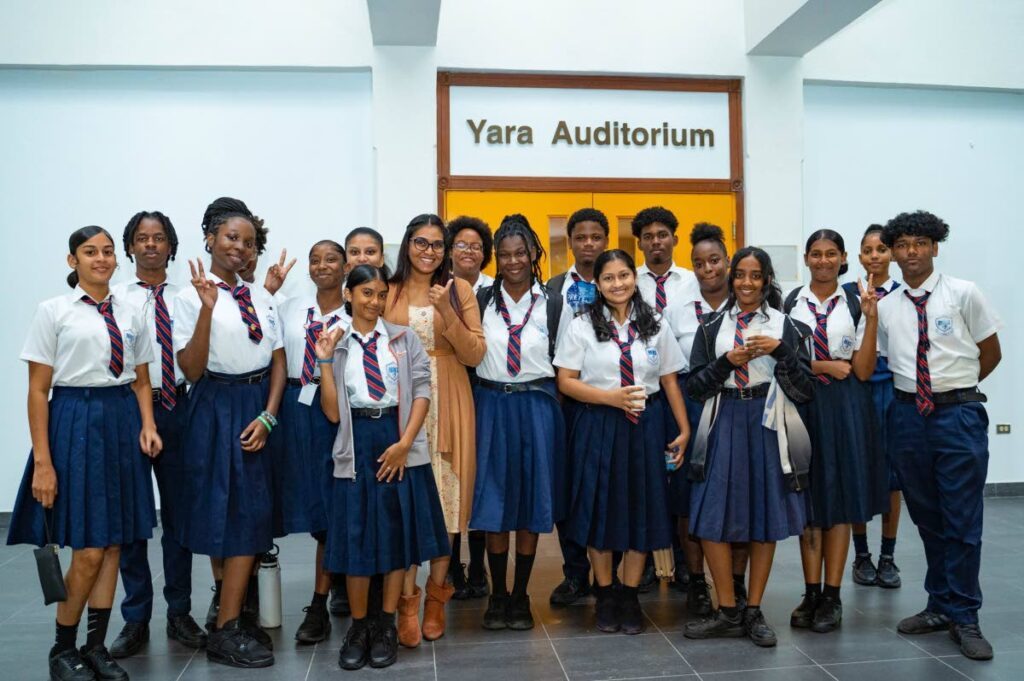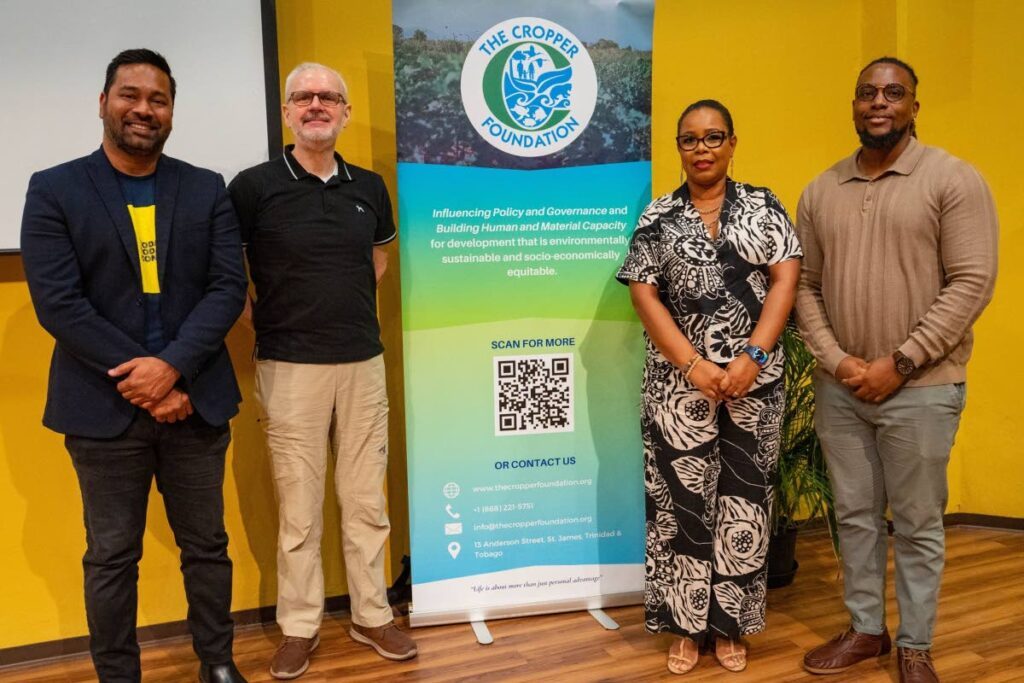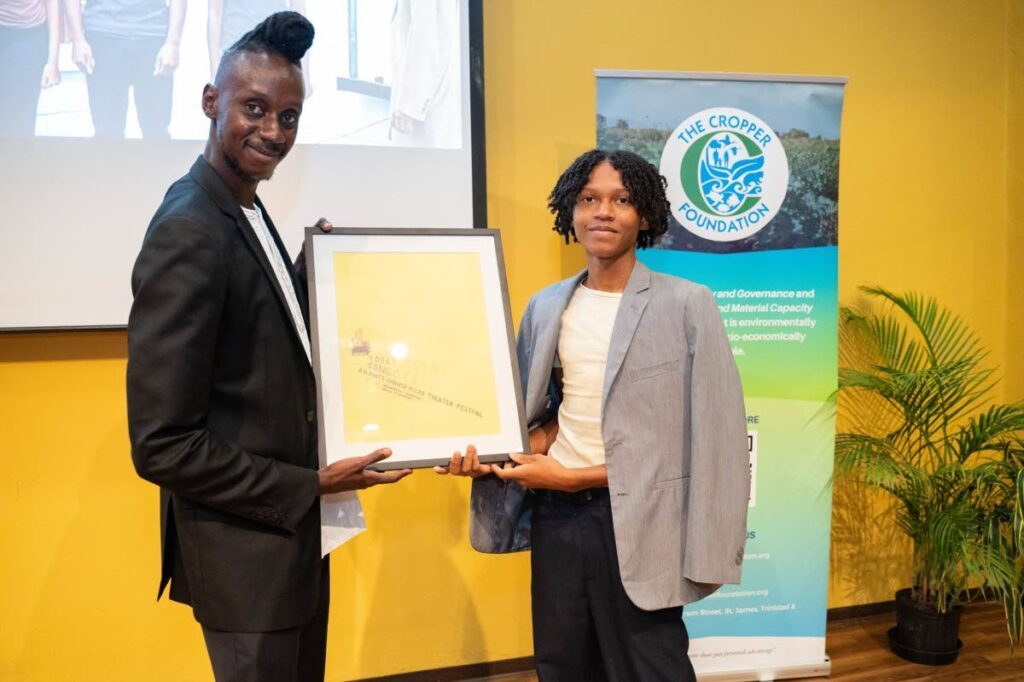Climate justice micro-theatre festival makes positive impact

Today Today, Congotay! a micro-theatre festival, was geared at raising awareness of the implications of climate change for the livelihoods, health and overall well-being of people living in underrepresented communities in Trinidad.
The climate justice-themed community theatre initiative attracted roughly 100 project stakeholders comprising civil society representatives, community members, Ministry of Education administrators, school personnel, students, directors, actors, artists, diplomatic representatives, well-wishers and organisers, a media release said.
Participants gathered at the Yara Auditorium of the Arthur Lok Jack Global School of Business, St Augustine, on April 20 to celebrate the project’s impact, the release said.
Funded by Open Society Foundations, the festival was conceived by The Cropper Foundation (TCF) in partnership with the Micro-Theatre Festival of Trinidad and Tobago (MTFTT) and executed in collaboration with Williamsville Secondary and Brazil Secondary Schools.
Over two weekends in October and November 2023, some 20 15-minute productions were presented to students and members of surrounding communities on repeat over several hours, as prescribed by the micro-theatre format.
The closing event included reflections from key project stakeholders, remarks from the Ministry of Education and a climate justice specialist, as well as a showcase of two of the plays presented at last year’s festival, House. POV by Albert Smith and Heat in d’ Market by Eric Barry.
“Climate justice speaks to the underrepresented voices of people and communities that suffer the most when it comes to the impacts of climate change. Schools like Brazil and Williamsville secondary schools and their communities are examples of such groups right here in TT,” said CEO of The Cropper Foundation Omar Mohammed.
“Core to this project, therefore, was involving and engaging these communities through these schools with the express intention of raising their voice and sharing their actual stories and concerns," he said.

In his overview of climate justice, climate policy advisor Carlon Mendoza of Climate Analytics Caribbean explained, “It is about advocating for the rights of all persons; it is interlinked with human rights.”
He underscored the importance of addressing the needs of the most vulnerable to climate impacts as central to climate justice with a story demonstrating the activism of young people in the town of Choiselle in St Lucia. Through their community group ATLAS, “they created a project to harvest rainwater for the elderly, marginalised, people forgotten about.”
he Ministry of Education deputy permanent secretary Ayanna Gaspard-Clarke emphasised, “We have to find the right formula to get more of our young people involved in a manner that they connect with best. It calls for matching that innate need for authenticity with powerful storytelling and creative expression. It calls for a movement to galvanise others to join the fight for environmental justice.”
Gaspard-Clarke praised Brazil and Williamsville Secondary Schools saying, “Your dedication to environmental education sets a shining example for many other schools to follow, and I encourage you to continue leading the way in this important work.”
Teachers representing both schools also shared their perspectives in a conversation with MTFTT co-founder Marcus Waldron. They agreed that the micro-theatre festival was a welcome opportunity to expose students to new ideas and creativity especially considering challenges posed by the constrained socio-economic circumstances of many of their students.
Brazil Secondary’s Kameel Mohammed-Ali reiterated his gratitude for the decision of The Cropper Foundation to work with schools like his, while Williamsville Secondary’s Wendy Maharaj revealed that the project helped revitalise the school’s environmental club.
Jaidn Bain, the 16-year-old visual artist who created the Today, Today Congotay! artwork, presented digitised prints of his original painting to the teachers and Waldron as tokens of appreciation, courtesy The Cropper Foundation.

In a panel discussion featuring directors and actors, MTFTT co-founder Albert Smith spoke to the origin of the micro-theatre format in his home country Venezuela, while his MTFTT partner Waldron recognised the distinct value of the format, “given that people’s attention spans were getting smaller.”
Director Ambika Ramdass, a teacher at Marabella North Secondary, had the unique experience of involving her students as actors and technical crew on her productions for the festival. She disclosed that in choosing to work with her students she considered, “What was the best way for me, in my small scope of power to enact change, not just from an audience perspective but from a participant level.”
In describing the process of engaging communities beforehand, Ramdass admitted, “I think that hearing their stories was really important for us to conceptualise that this crisis that we’re in is a lot more nuanced than we thought it was.”
With some prodding from Ramdass, Marabella North Secondary student-actress Naomi Wolsey chimed in from the audience, “While you could sit in a class and learn about it and read your textbook…it doesn’t really impact how you see it.” As a reference to the play in which she took part, The Protector, she added, “It gives you a personal feel. It’s not just this random person, it’s somebody you could look at and be like ‘Oh, is this how they were really affected?’”
The Cropper Foundation’s project team has since adopted Today, Today Congotay! to title the overarching arts-based climate justice project being implemented over 2023-2026, with support from Open Society Foundations, the release said.
The Cropper Foundation communications lead Ardene Sirjoo says, “We’re indebted to Marcus Waldron for this brilliant name, which, as a play on the colloquial exhortation One day, One day, Congotay (loosely translated as ‘who cyah hear go feel’), and in our local parlance, registers the present, existential threat of the climate fallout.”
Submit climate justice pieces
Up next in the Today, Today Congotay! climate justice arts-based project is the literary component, where Caribbean nationals resident in the region will be invited to submit their climate justice pieces to be considered for an anthology titled, Writing for our lives.
The The Cropper Foundation will open the call for submissions on May 1. Entries across the fiction, non-fiction and poetry genres are welcome, the release said.
For more info: follow The Cropper Foundation on Instagram and Facebook or visit www.thecropperfoundation.org.

Comments
"Climate justice micro-theatre festival makes positive impact"